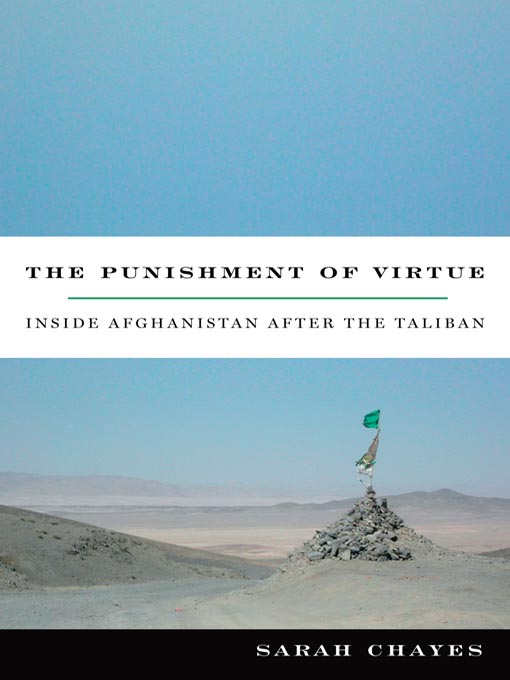
The Punishment of Virtue
Inside Afghanistan After the Taliban
- اطلاعات
- نقد و بررسی
- دیدگاه کاربران
نقد و بررسی

June 5, 2006
Afghanistan only uncovers itself with intimacy, and intimacy takes time," writes Chayes, a skilled but increasingly frustrated journalist, whose determination "to grasp the underlying pattern" during and after the toppling of the Taliban in late 2001 chafes against her editors' post-9/11 comfort zone. With keen sympathy for Afghanistan's indomitable people, Chayes eventually swaps NPR and its four-and-a-half-minute slots for an NGO, becoming "field director" of Afghans for Civil Society, spearheaded by Qayum Karzai, the president's brother. ACS's humanitarian work, which includes rebuilding a bombed-out village, brings Chayes into direct conflict with the warlords with whom U.S. policy remains disastrously entangled. This is the point of her engrossing narrative, which begins in Pakistan, inside the U.S.-backed Afghan resistance pushing northward to Kandahar, and is framed by the 2005 murder of police chief Zabit Akrem, a key ally in the fight against Kandahar's corrupt warlord-governor. Throughout, Chayes relies on exceptional access and a felicitous prose style, though she sacrifices some momentum to cover several centuries of Afghanistan's turbulent past in an account that adds little to those by Ahmed Rashid and others. However, her hands-on experience as a deeply immersed reporter and activist gives her lucid analysis and prescriptions a practical scope and persuasive authority.

July 1, 2006
That "other war" in Afghanistan appears to be heating up as an apparently resurgent Taliban and their allies have stepped up attacks against Afghan and coalition forces. So this is both a timely and disturbing account of the post-Taliban struggle to build a viable and nonthreatening government and civil society in that tortured land. Chayes worked as a foreign correspondent for National Public Radio and covered the fall of the Taliban. In 2002 she left NPR to work for a nongovernmental aid organization within Afghanistan. Chayes used her great access to President Hamid Karzai, provincial officials, tribal elders, and U.S. military and government officials to offer a strong indictment of American policies, which she asserts allowed the return of brutal warlords to power in local government. She maintains that American naivete allowed the reinfiltration of Taliban forces, often aided by sympathetic elements of the Pakistani military. This is not a balanced account, and Chayes may be unrealistic in suggesting how things could have turned out differently. However, given her knowledge and experience, she merits attention.(Reprinted with permission of Booklist, copyright 2006, American Library Association.)




دیدگاه کاربران